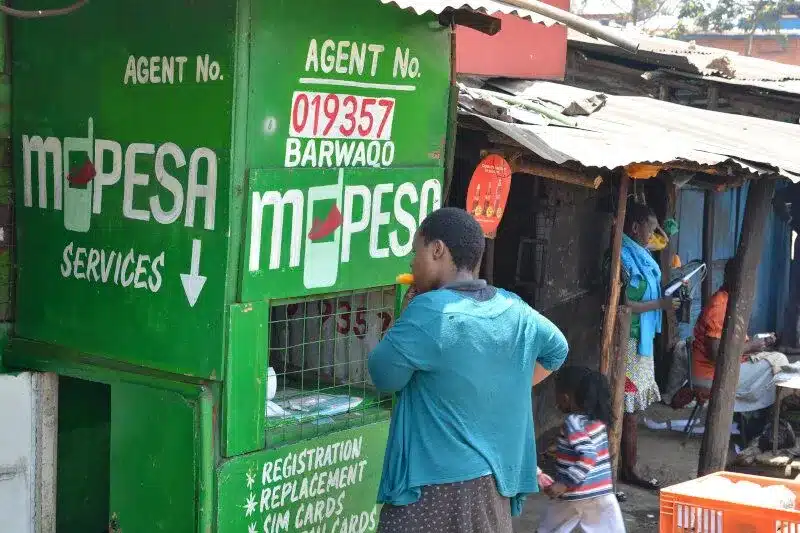Salaam,
Victoria from Techpoint here,
Here’s what I’ve got for you today:
- NCC introduces ₦10M licence for bulk SMS senders
- Get your drugs today, pay in 30 days
- Vodacom to take 40% of Maziv under tight surveillance
NCC introduces ₦10M licence for bulk SMS senders

The Nigerian Communications Commission (NCC) has rolled out a new rulebook for the booming Application-to-Person (A2P) messaging industry. In simple terms, if your business sends bulk SMS alerts like bank notifications or promo messages, you’ll now need a licence, and it’ll cost you ₦10 million for five years. From now on, this space will be tightly regulated to curb spam, reduce fraud, and plug revenue leaks in the telecom sector.
A2P messaging is everywhere. Banks use it for alerts, airlines for booking updates, and even hospitals and politicians rely on it to reach customers. But the space has been a bit of a free-for-all, with grey routes and spam messages becoming a nightmare for customers. The NCC says it’s stepping in to bring order and make sure Nigeria earns from international message traffic.
One major change is that international A2P messages must now pass through NCC-approved routes. That means foreign companies can’t just bypass local networks to deliver SMS in Nigeria anymore. The move is also about protecting data and improving service quality, something the Commission says is critical for Nigeria’s digital future.
Businesses that already use automated messaging, like banks, fintechs, or logistics companies, will have to either apply for a licence or partner with someone who has one. While big corporates might not flinch at the ₦10 million fee, smaller players may struggle or merge with licensed providers. Either way, it’s no longer business as usual.
There’s also a big push to block out shady SMS routes — what the industry calls grey routes — used to sneak in messages cheaply and unofficially. The NCC wants to shut that down and ensure everyone plays fair. Plus, licensed providers will need to meet data privacy standards, report their traffic and pricing to the Commission, and avoid blocking or discriminating against rivals.
For customers, this could mean fewer spam messages and more transparency in how their data is used. For the industry, it’s a major shake-up with the potential to streamline operations and return more revenue to local telcos. The NCC is currently collecting feedback and might tweak the framework a bit, but it’s clear that change is coming.

Victoria Fakiya – Senior Writer
Techpoint Digest
Stop struggling to find your tech career path
Discover in-demand tech skills and build a standout portfolio in this FREE 5-day email course
Sick and broke? AHA’s got a plan for that

Health insurance still feels like a luxury in Nigeria, where about 79% of the population is completely uncovered. With nearly half of Nigerians living in poverty, many people are forced to choose between buying medicine or putting food on the table. It’s a brutal trade-off, especially for salary earners who run out of money before payday.
That’s the gap Advantage Health Africa is trying to close. The Nigerian healthtech startup just rolled out a new Buy Now, Pay Later (BNPL) product to help salaried Nigerians access essential medication when they need it, not just when they can afford it. With this service, users can get up to ₦50,000 worth of drugs and repay it within 30 days.
“We know what it’s like when your pocket is empty, and payday is far away,” says Abimbola Adebakin, founder and CEO of the startup. “In a country where people still pay out of pocket for healthcare, that empty pocket could cost you your health or your life.”
What makes this different from your regular BNPL product is its structure. No interest. No upfront payment. Just a flat ₦2,500 service fee, no matter how much your meds cost, as long as it’s within the ₦50,000 cap. And if your prescription goes beyond the cap, you’ll just have to cover the balance yourself.
To start off, the service is available through WhatsApp, keeping things simple and manual, something the company prefers before full automation. Advantage Health Africa is also partnering with CRC Credit Bureau to check eligibility and ensure the people who sign up can pay back. They’re already working on expanding that reach.
It’s not risk-free, though. There’s always a chance that some users might default. But Adebakin believes the healthcare angle will make people think twice before misusing the service. And when payday hits, they won’t have to choose between feeling better and eating dinner. So, why does it matter? Find out in Chimgorizim’s latest here.
Vodacom to take 40% of Maziv under tight surveillance

If you’ve been following the Vodacom–Maziv back-and-forth, you’d be forgiven for thinking the whole thing was dead in the water. But in a twist no one quite saw coming, South Africa’s Competition Tribunal has done a full 180, approving Vodacom’s R13.2 billion ($716 million) bid to acquire a minority stake in fibre giant Maziv. Yeah, the same deal they blocked just last year.
This is a huge win for Vodacom, which has been pushing for this merger as a way to accelerate fibre rollout and bridge South Africa’s digital divide. With the green light, Vodacom can now take up a 30–40% stake in Maziv, the parent company of Dark Fibre Africa and Vumatel, two of the biggest names in the country’s fibre network space.
But the approval didn’t come without strings. The Tribunal still has major concerns about how much influence Vodacom could wield, especially since it’ll have board seats and veto power. To ease those fears, regulators have attached strict conditions: Vodacom can’t access competitors’ sensitive data, must offer fair pricing to other ISPs, and is required to invest R13 billion ($706 million) over five years to connect one million new homes.
It’s a classic case of “you can have the deal, but only if you behave.” The Tribunal referenced past cases, like the blocked Mediclinic–Matlosana merger, to justify its cautious approach. But with South Africa still struggling with patchy internet access, the need for infrastructure investment clearly weighed heavily in Vodacom’s favour this time around.
Interestingly, the decision comes just months after the Maziv–Herotel merger was approved under open-access conditions. That deal was seen as a cleaner fit, with less risk of squeezing out smaller ISPs. Telkom, Vodacom’s long-time rival and one of the loudest voices against the Maziv deal, hasn’t commented yet, but it’s unlikely they’re pleased.
Whether this is a win for South Africans or just another power play remains to be seen. But one thing’s clear: the fibre wars are heating up, and regulators are now walking the tightrope between competition and connectivity.
In case you missed it
- 300 million+ transactions, ₦14.3 trillion naira. How Kuda performed in Q1 2025
What I’m watching and reading
- The history of our world in 18 minutes | David Christian | TED
- What makes tuberculosis (TB) the world’s most infectious killer? – Melvin Sanicas
Opportunities
- Pitch Friday is on Friday, July 11, 2025. Register here to attend.
- Lagos Business School is hiring. Apply here.
- Kuda is looking to fill 37 positions. Apply here.
- Jumia is hiring a Chief Marketing Officer (Pipeline). Apply here.
- Sun King is looking for a Workforce Planning Analyst, Nigeria. Apply here.
- Building a startup can feel isolating, but with Equity Merchants CommunityConnect, you can network with fellow founders, experts, and investors, gaining valuable insights and exclusive resources to help you grow your business. Click here to join.
- Help us make Techpoint better for you! Your feedback shapes what comes next (your responses may potentially save my job. A bit dramatic, but still). It will only take 30 seconds to tell us what works and what doesn’t. Fill it here.
- To pitch your startup or product to a live audience, check out this link.
- Have any fresh products you’d like us to start selling? Check out this link here.
- Follow Techpoint Africa’s WhatsApp channel to stay on top of the latest trends and news in the African tech space here.
Have a wonderful Wednesday!











